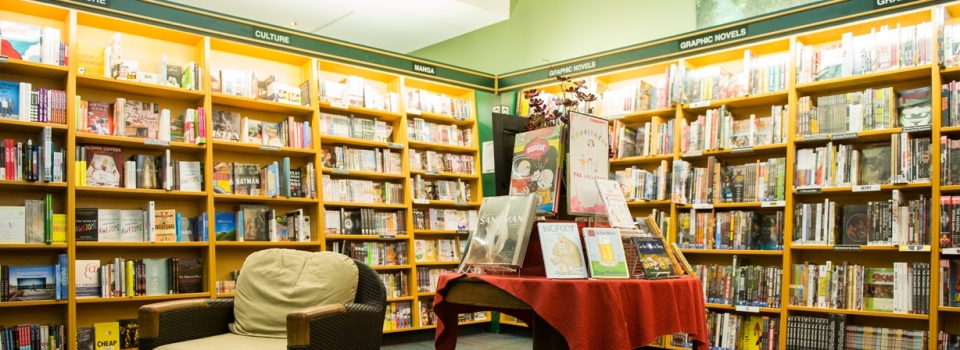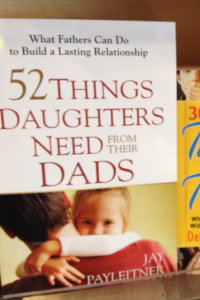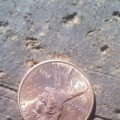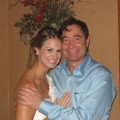
This past week, I enjoyed a vacation in Florida with my husband and some friends. While passing the time during an airport layover, I perused a few store bookshelves (as I often do) to see if something might pique my interest. I couldn’t help but notice – especially in the South – the pervasiveness of self-help books. One called “52 Things Daughters Need from Their Dads” jumped out. This is because my dad was a self-help book junkie and likely would have bought this, if it wasn’t already in his collection… After his death, I believe we donated upwards of 300+ books, many of the self-help nature. Of course, it also struck a chord because what I need most from my dad at this point is for him to be here, and he’s not. All of this made me wonder a) why the self-help books didn’t “help” him and b) if something in him was programmed all along to be predisposed to depression or even suicide and these books were his way to fight those feelings?
and likely would have bought this, if it wasn’t already in his collection… After his death, I believe we donated upwards of 300+ books, many of the self-help nature. Of course, it also struck a chord because what I need most from my dad at this point is for him to be here, and he’s not. All of this made me wonder a) why the self-help books didn’t “help” him and b) if something in him was programmed all along to be predisposed to depression or even suicide and these books were his way to fight those feelings?
The topics of my dad’s many self-help books ranged from improving his skills in a given hobby to achieving greater happiness to becoming a more virtuous person. He seemed to be on a continual quest to find better – whatever that meant to him. It didn’t end there. He was also fond of positive, motivational quotes he could frame along the walls of our home. I always brushed this off as “dad just being dad.” After all, he’d been doing this for as long as my memory could serve me and for all but a couple months towards the end of those 29 years, he seemed to be a perfectly happy and content man. Shock still doesn’t even begin to describe my reaction to his final decision. How could someone so happy and motivated consider suicide? He loved nothing more than his family and making sure that we lived full, memorable lives. Always the celebrator, he found reason to mark any day as extra special with treats or a dinner out on the town.
The “52 Things” book was sandwiched between other titles, like, “Be All You Can Be,” “This Too Shall Pass,” “Unstoppable” (about a man, Nick Vujicic, born with no arms or legs) and “Life Without Limits” (a second book by the same man). As I scanned these titles, I wondered to myself – “How was this guy with no limbs able to mentally overcome this and even write books and my dad wasn’t able to face what he was dealing with?” Without having read those books, I don’t know if Vujicic had considered suicide, but if not, how are some people able to experience the worst and not have this thought cross their minds while others do? I have explored this with my grief counselor and she was the one who had suggested that some people really are just wired to allow something like suicide to be considered an option. I guess this might help to explain my dad’s efforts to find and achieve “happiness.” But, was it only at the end or all along, even if buried far, far back in the bottom of his mind? Obviously I will never know or be able to ask, but I do wonder if any of this is connected sometimes. One of the activities my dad and I used to do together was go to Barnes & Noble late at night when nothing else was open. He didn’t always buy self-helps, but it was definitely commonplace. In fact, I actually like reading them too and still do. This is probably why one of the first thoughts that crossed my mind when he died was to buy Barnes & Noble out of every grief recovery book on their shelf – which I actually did. I also immediately jumped into my counseling and LOSS support groups. Shades of my father are definitely very much a part of me!
Anyway, one of the last books on the airport display was “Battles Men Face.” Again, without having read or even skimmed this book, I am reacting to the title alone. But, this self-help book in particular reinforced something else to me. Self-help really can only go so far, especially among someone contemplating suicide. “Outside-of-self” help is something I wish my dad and others would embrace. Jessica, Lindsay and I have talked about the fact that our dads might have made a very small initial step to tell someone else that they were feeling depressed, however they really didn’t react or respond well to seriously being helped by others (professionals, anti-depressants, etc.). Maybe this book is on to something – as the providers of the family – help is just not something they think they should or could ask for. We so wish they had. Maybe they thought suicide was their ultimate answer to seeking self-help, but in our minds, it was the worst. This is one reason why I am so thankful for the “outside of self” help I have been able to receive through the support network I’ve built for myself. It’s kind of difficult to push for this now, in hindsight. But, it’s something I do hope more men – or anyone else who is struggling – consider for themselves. It is ok to ask for help. Please, please know that it’s ok to ask for help.



After reading this post, I could relate to the confusion of why could they not reach out Why didn’t I know. I and his family was completely blind sided by this and keep looking for answers. John seemed happy. He hid his pain well. Sometimes I feel angry at him and then I feel guilt about that. I now have more questions than I have answers. How long did he plan this.? Was anything about our relationship real ? Or had he had this in his head right along and he was just telling me what I wanted to hear? I miss him so much and just want to turn the clock back and save him….
I totally understand what you’re saying. I do wonder how much they knew all along. What I’d give to be able to know.